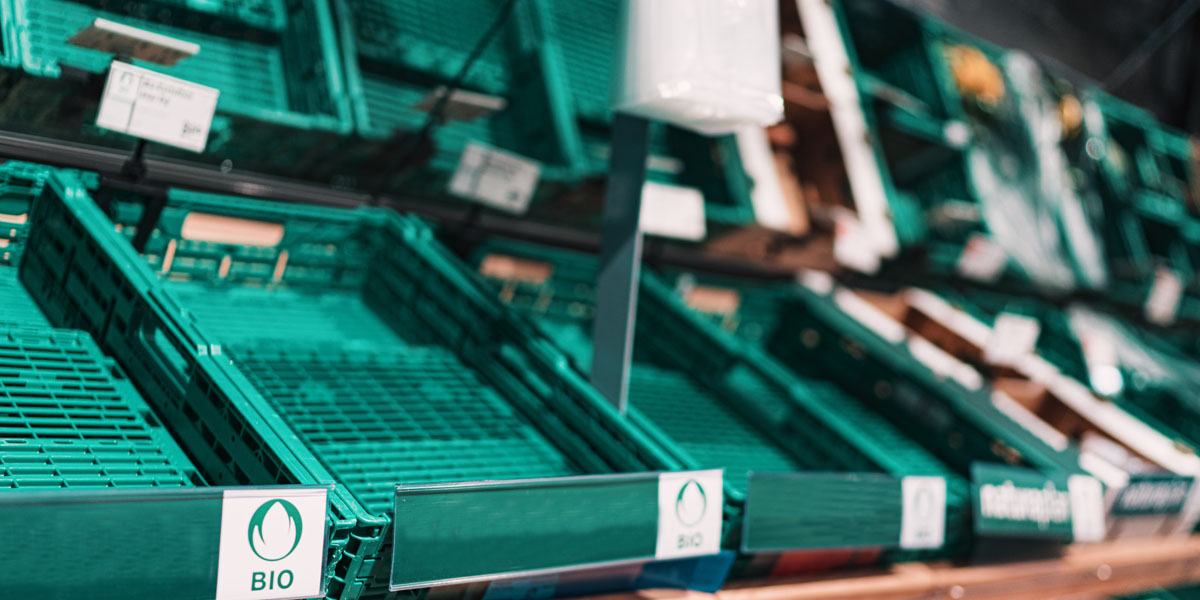Persistently high inflation data in February continued to cause concern about central bank rate hikes, while extreme weather and disruption to supply chains led to UK food shortages and highlighted the challenges regarding global food security.

February 2023 market commentary
Article last updated 8 March 2023.
After a strong start to the year for investment markets, February saw consolidation across most risk assets. Investors continued to be concerned about persistent inflation and central bank rate hikes. UK and European equities proved resilient, amidst broad losses elsewhere. The FTSE 100 gained 1.5% on the month and the Euro STOXX 50 index returned 1.6%. In the US the S&P 500 fell 3.6%. The FTSE World Index lost 2.4% over the course of the month.
(All returns are sourced from FactSet and are reported as total return in local currency for the period 01/02/2023 – 28/02/2023)
Inflationary pressures persist
Strong US jobs growth figures for January caused investors to fear inflation could be more persistent than previously thought. The report showed 517,000 new jobs added, significantly higher than the 187,000 market estimate. The boost in jobs meant the unemployment rate fell to a 53-year low of 3.4%. There was also an upwards revision to the US Q4 2022 core inflation (CPI) number which was adjusted to 4.25% from the 3.14% originally reported. These data releases led investors to re-appraise how much the US Central Bank would need to continue to increase interest rates to bear down on inflation. Persistently high inflation data continued in other regions, with core Eurozone inflation reaching 5.3% in January (the highest on record) and inflation in Japan reaching 4% for the first time since 1981.
Russia announces plans to cut oil production
Russia announced its plans to cut oil exports by 500,000 barrels per day in March. The Russian government offered no explanation for this move, although speculation is that it may be due to the severe weather in Siberia, a direct attempt to lift prices, or a further escalation in the weaponisation of energy supplies. Russia has so far managed to re-route its oil exports from Europe to India, China and Turkey who have ignored Western sanctions. Further oil and energy price increases would be politically painful for many Western governments and likely to send further shockwaves through financial markets. The war in Ukraine combined with extreme weather events has highlighted the need for increased energy security and resilience of supply. In its latest Electricity Market Report 2023, the International Energy Agency highlights the growing importance of increasing the flexibility of our power systems as the clean energy transition gathers pace.
The proportion of the UK’s vegetable and fruit supply which is imported stands at approximately 47% and 84% respectively, with an increasing percentage coming from areas defined as ‘climate vulnerable’.
Food security amid shortages
In the UK grocery prices rose at their fastest pace in 15 years, climbing 17.1% on an annual basis, up from 4.3% a year earlier. There were also shortages of fruit and vegetables in UK supermarkets in February due to extreme weather in the Mediterranean and North Africa affecting harvests. The proportion of the UK’s vegetable and fruit supply which is imported stands at approximately 47% and 84% respectively, with an increasing percentage coming from areas defined as ‘climate vulnerable.’ Spiralling energy costs and Brexit-related supply chain challenges meant that The Netherlands, usually our fall-back supplier, has not been able to make up the shortfall for the UK either.
The recent shortages in the UK are signs of a deeper-rooted systemic issue regarding food security. Food prices remain high around the world with supply chain disruptions, climate change, the war in Ukraine and financial tightening all causing a shock to the global food system. Last month a joint statement was issued by heads of the World Bank, International Monetary Fund and World Trade Organisation calling for urgent action to address the global crisis in food and nutrition security.
Government creates dedicated Net Zero department
Prime Minister, Rishi Sunak, has created a new dedicated energy department called the Department for Energy Security and Net Zero. The new department will be tasked with “securing our long-term energy supply, bringing down bills and halving inflation.” The creation of the new department comes a month after a government-commissioned independent review into the UK’s Net Zero strategy stated the need for accelerated climate action from the UK government. The report details 129 recommendations across key sectors such as the built environment, renewable energy, green finance and nature. It cites a lack of policy clarity, insufficient capital for investable propositions and delays in planning as the main barriers to decarbonisation.
Conclusion
February was a challenging month for investment markets with most major indices reversing the gains seen in January. Whilst some economic indicators are improving, inflationary pressures continue to persist with further interest rate hikes expected from most major Central Banks. We are cautious in our outlook given the headwinds to global growth. Our portfolios remain defensively positioned and we continue to seek out quality companies where businesses are well placed to ride out turbulent times and benefit from long-term structural sustainability trends.




